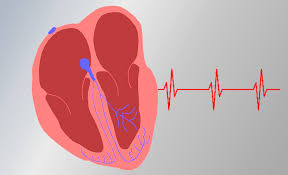
Physiology
Physiology is the branch of biology that focuses on the study of the normal functions and processes of living organisms and their parts. It seeks to understand how living systems work, from the molecular and cellular levels to the functioning of entire organ systems. Physiology plays a fundamental role in biology and medicine, as it provides insights into the mechanisms underlying health, disease, and the overall functioning of organisms. Physiologists are responsible for investigating the chemical and physical functions of organisms, organs, cells and bio-molecules. The study of cells, muscles and organs in human body is known as Human physiology through which many diseases are treated and issues are resolved.
Physiology is a multidisciplinary field that combines elements of biology, chemistry, physics, and medicine. It is essential for advancing our understanding of health, disease, and the overall functioning of living organisms. Researchers and healthcare professionals in fields such as medicine, nursing, and physical therapy rely on physiological principles to diagnose and treat medical conditions and to develop interventions that promote health and well-being.
Physiologists play a crucial role in advancing our understanding of the normal functions and processes of living organisms. Their work spans various disciplines, from biology and medicine to exercise science and environmental science. Overall, physiologists contribute significantly to our understanding of how living organisms function, how diseases develop, and how to improve health and well-being. Their work has broad applications in medicine, healthcare, sports, environmental science, and various other fields, making them valuable contributors to scientific and societal advancements.
Role Desciption
The specific roles and responsibilities of physiologists can vary depending on their area of specialization and the context in which they work. Here are some common roles and functions of physiologists:
Research: Physiologists conduct research to investigate the functions and mechanisms of various biological processes. They design experiments, collect and analyze data, and publish their findings in scientific journals. Research areas can include cellular physiology, cardiovascular physiology, neurophysiology, and many others.
Teaching and Education: Many physiologists work in academia as professors or educators. They teach physiology courses at the undergraduate and graduate levels, imparting knowledge and practical skills to students. They may also mentor students in research projects.
Clinical Practice: Clinical physiologists, often known as clinical exercise physiologists or clinical physiologists, work in healthcare settings. They assess and evaluate patients' physiological conditions, often focusing on exercise and rehabilitation programs to manage chronic diseases, improve fitness, and enhance overall health.
Medical Research: Some physiologists work in medical research institutions, collaborating with healthcare professionals to better understand disease mechanisms and develop new treatments. They may be involved in clinical trials and translational research.
Environmental Physiology: Environmental physiologists study how organisms adapt to and function in various environments, including extreme conditions such as high altitudes, extreme temperatures, or underwater. Their research can have implications for conservation efforts and understanding the impacts of climate change.
Sports and Exercise Science: Exercise physiologists work with athletes and individuals to optimize physical performance and health. They design exercise programs, conduct fitness assessments, and provide guidance on nutrition and training.
Pharmaceutical and Biotechnology Industries: Physiologists may work in pharmaceutical or biotechnology companies, contributing to drug development, clinical trials, and research on new medical technologies.
Government and Public Health: Some physiologists work for government agencies, contributing to public health initiatives and policies. They may be involved in research related to disease prevention, environmental health, and safety regulations.
Consulting: Physiologists with expertise in various areas, such as ergonomics or occupational health, may work as consultants for companies or organizations, helping them improve workplace conditions, employee health, and safety.
Rehabilitation: Physiologists, particularly in cardiac or pulmonary rehabilitation settings, help patients recover from cardiovascular or respiratory conditions through monitored exercise and lifestyle interventions.
Scientific Communication and Outreach: Physiologists may engage in science communication and public outreach activities, such as writing popular science articles, giving public lectures, or participating in community education programs.
Ethical Considerations: Physiologists must adhere to ethical standards in their research and professional activities, ensuring the safety and welfare of research participants and adhering to ethical guidelines in medical practice.
Eligibility
| Route 1 | 10 + 2 with Science Stream with Biology |
| B.Sc. (Hons) in Physiology | |
| M.Sc. in physiology | |
| Route 2 | 10 + 2 with Science Stream with Biology |
| B.Sc. in Life Sciences / BPT/ BDS/ BVSc/ B. Pharma | |
| M.Sc. in Physiology | |
| Route 3 | 10 + 2 with Science Stream with Biology |
| MBBS | |
| MD in Physiology |
Significant Statistics
- Some colleges conduct entrance test for admissions
Pros/Cons
Pros
- Wide variety of options of industries to work for
- Help others in recovering from ill health
- Job satisfaction
Cons
- Odd working hours
- Need years of education and training
Leading Professions
View All
Clinical exercise Physiologist
They are responsible for...
8.0LPA

Biomedical science
They test fluids and tis...
12.0LPA

Sports Physiologist
Sports Physiologists are...
15.0LPA

Research in Physiology
They concentrate on cond...
8.0LPA

Physiology Educationist
In the Education field, ...
10.0LPA

Medical Physiologist
Medical physiologists st...
10.0LPA

Cardiovascular Physiologist
Cardiovascular physiolog...
10.0LPA

Neurophysiologist
Neurophysiologists study...
15.0LPA
CAREER VIDEOS
Career Path
Physiology
3 Steps
Skills
Recruitment Area
Government organizations ,
Healthcare ,
Pharmaceutical Companies ,
Private organizations ,
Educational Institutes .
Recruiters
AIIMS ,
PGI ,
Apollo ,
Alchemist ,
Fortis ,
Sun Pharma ,
Max hospitals .
Explore Colleges
Exams & Tests
Interested? Take the next step for this career
Physiology
- 3 Steps
Skills Needed
Exams and Tests
Recruitment Area
Government organizations ,
Healthcare ,
Pharmaceutical Companies ,
Private organizations ,
Educational Institutes .
Recruiters
AIIMS ,
PGI ,
Apollo ,
Alchemist ,
Fortis ,
Sun Pharma ,
Max hospitals .



















